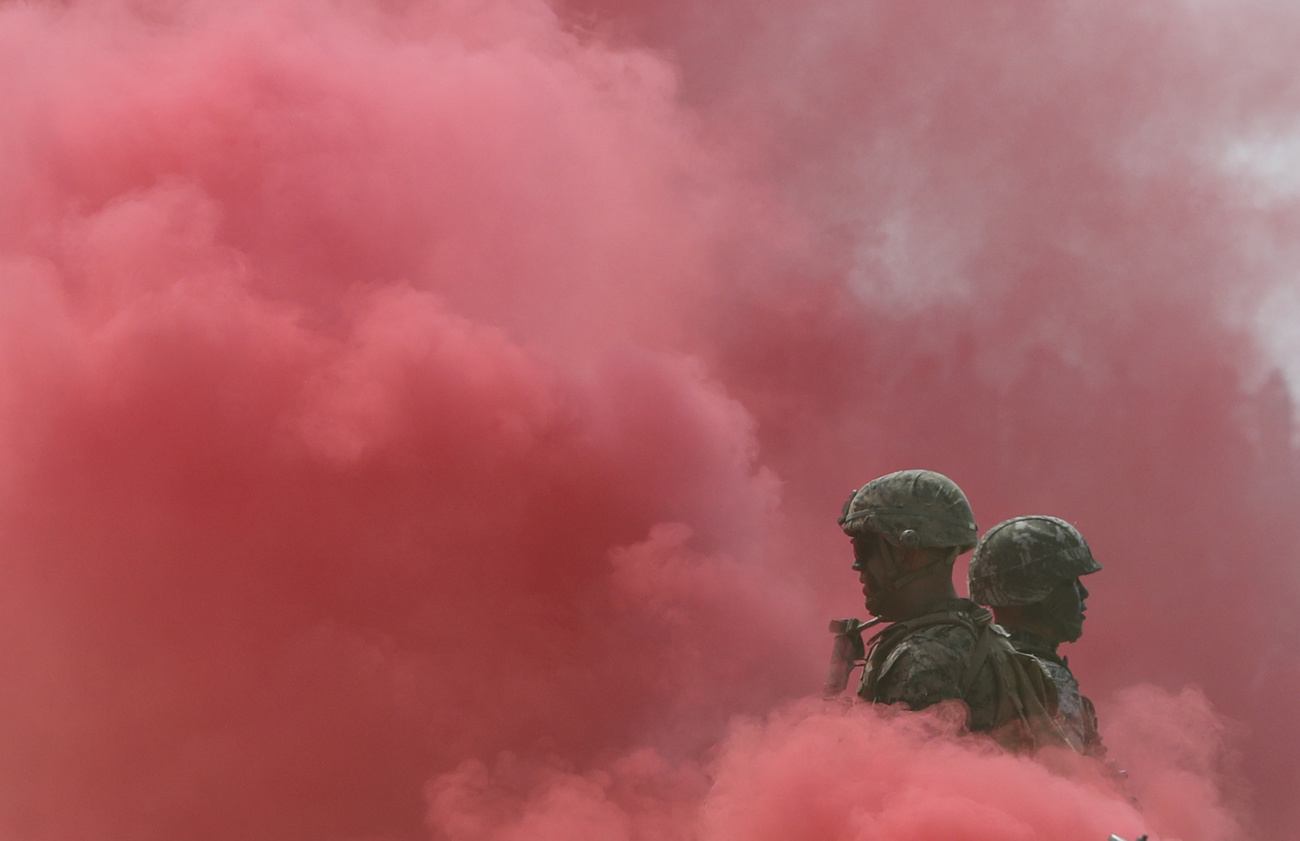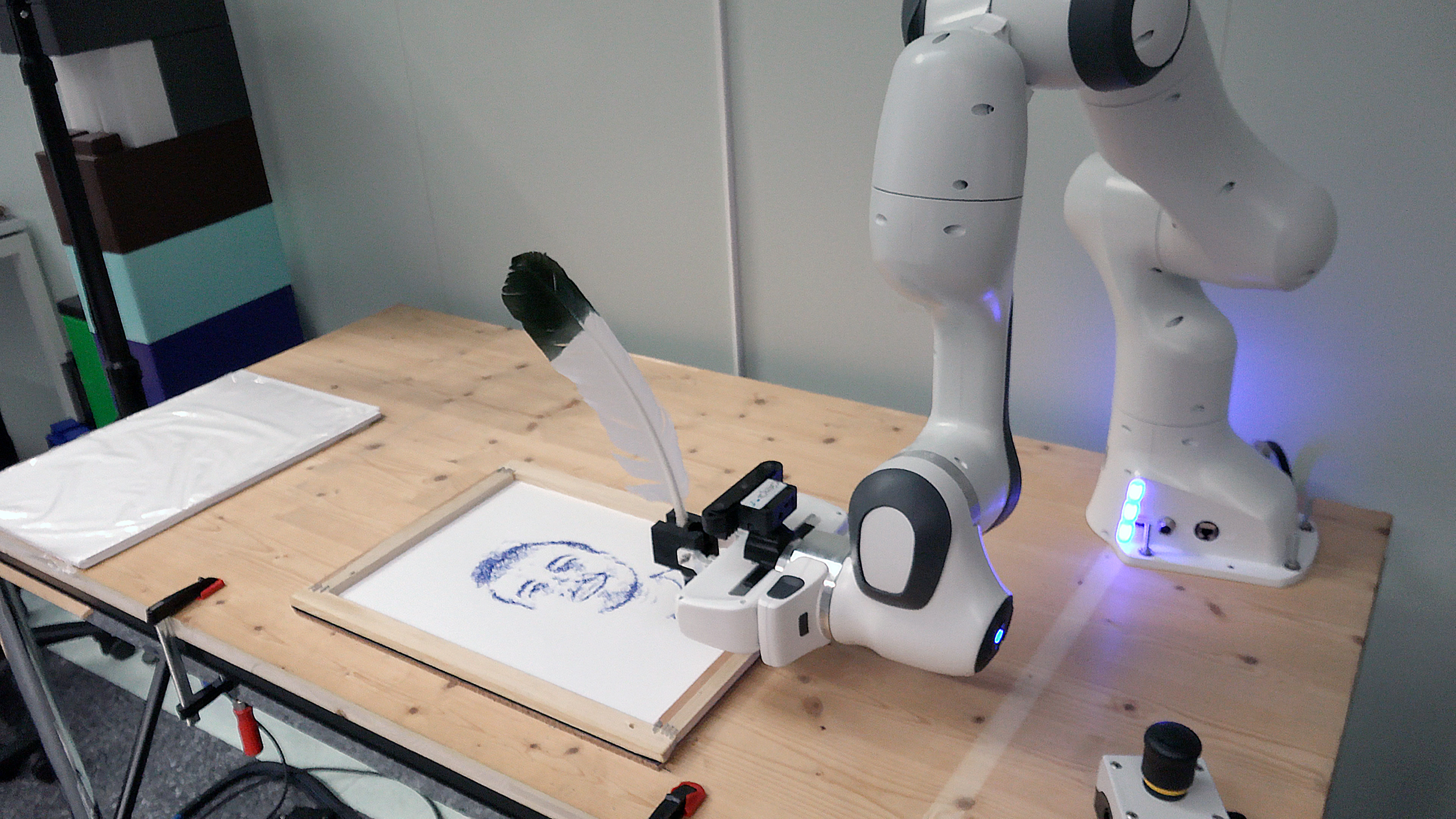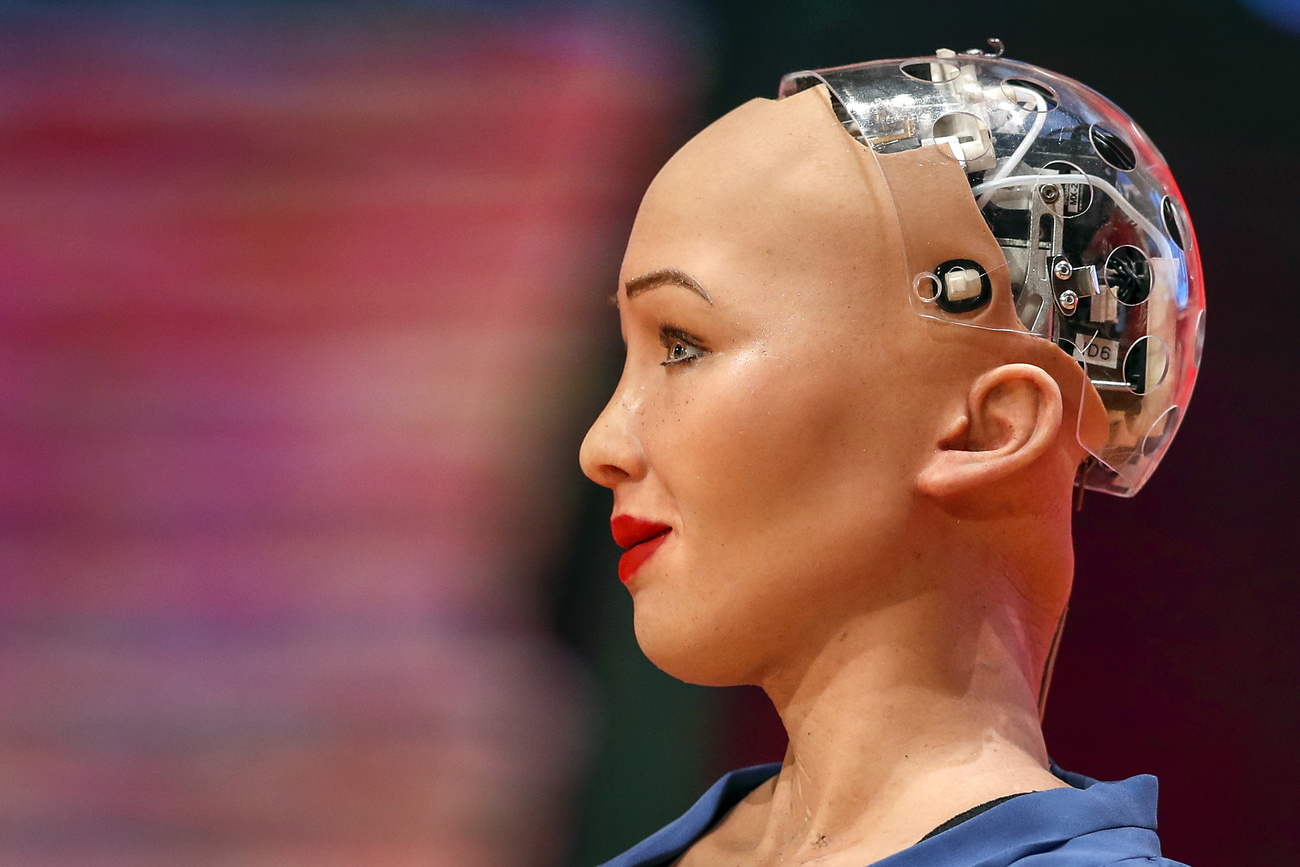
Nuclear, autonomous and cyber weapons: how technology contributes to warfare
Warfare in 2022 means arsenals far more sophisticated than they used to be, made up of powerful nuclear weapons, lethal autonomous weapons guided by artificial intelligence, and digital weapons to be dropped on the internet – where not even Switzerland is safe.
Russian President Vladimir Putin has reminded the world that nuclear weapons exist and that they could still be used. In the long period of peace and prosperity in Europe after the end of the Second World War, the risk of nuclear conflict remained in the recesses of our minds, and was revived only for a moment during the Cold War before sinking again into oblivion.
However, throughout all these years of “nuclear silence”, technology has been evolving, and nuclear weapons are now even more lethal and dangerous than before. Today, in fact, they are more compact, precise and powerful than those dropped on Hiroshima and Nagasaki. Some of the warheads in Putin’s hands are 50 times more destructive than those used in 1945. And while the force of the bomb dropped on Hiroshima was 14-15 kilotonnes (between fourteen and fifteen thousand tonnes of TNT), China now has bombs in the order of megatonnes (millions of tonnes of TNT).
In a recent articleExternal link, I analysed the state of nuclear weapons and what a nuclear war would look like with the help of Stephen Herzog and Alexander Bollfrass, two researchers from the Centre for Security Studies at ETH Zurich, which specialises in Swiss and international security policy.

More
Explainer: What would a nuclear war look like?
Alarm bells always ring too late
Herzog and Bollfrass also made me think about another point. The nuclear threat is a bit like the pandemic: everyone knows that it might come, but nobody does anything about it until it does. That’s what happened with the Covid-19 pandemic, and it’s happening with the danger of nuclear war.

More
How a Swiss start-up wants to reinvent nuclear energy
“I think people should not only worry about nuclear weapons when there is a crisis,” Herzog told me. “What would happen to the world if Russia used nuclear weapons? We are literally talking about the potential destruction of entire cities in Europe and the effects of radioactive fallout – in Switzerland as well. This is, in many ways, an existential risk and something that I think the public needs to focus more on.”
After all, who among us has ever really thought – until now – about the real repercussions of a nuclear war and the fact that cities could be razed to the ground in a matter of minutes? Why aren’t there more protests against nuclear weapons like in the 1980s, when hundreds of thousands took to the streets in Germany and the US? Let me know what you think.
More
Lethal weapons, enhanced by AI
It would be wrong, however, to think of nuclear weapons as the only threat to humanity and world order: we also shouldn’t forget the advances in military innovation made possible by artificial intelligence (AI).
We used to think of hyper-technological weapons in science fiction terms, imagining killer robots like Arnold Schwarzenegger in Terminator, only possible on the big screen. But we were wrong. Stuart Russell, a well-known British computer scientist and a professor at the University of California, Berkeley, explained why in a recent podcastExternal link: these weapons are not science fiction, they really exist and they are available for use in warfare.
Moreover, they are not robots that fire bullets randomly, but rather autonomous systems that can find, choose and eliminate – without human supervision. In future, Russell believes, we will see “smart” lethal weapons which are smaller, cheaper and more agile than a tank, an attack helicopter or an armed soldier.

More
A visit to the AI lab
Of course, using AI allows for more precise attacks and the reduction of collateral damage and civilian casualties, claim those who support this technology, especially the US and Russia. But on the other hand we have to ask to what extent these algorithms, which decide in a cold and calculated way who to kill and who to spare, can lead to the escalation of armed conflicts – and at what cost to humanity.
The other question concerns the intelligence of the AI models which drive these autonomous systems: are they capable of discernment? Where does responsibility lie? A research team at the Idiap research institute in Switzerland, which specialises in artificial and cognitive intelligence, made me think of a key point: there is no intelligence behind artificial intelligence, because no AI system can properly mirror human thought, nor demonstrate a capacity for reasoning and common sense equal to that of humans. Is it therefore moral that algorithms hold such lethal power over us?

More
Is artificial intelligence really as intelligent as we think?
Geneva fears cyberwarfare
If Switzerland has less to fear from a direct military offensive, because of its neutrality, the same cannot be said of cyber-attacks. We already discussed this in a previous newsletter, but as the war in Ukraine goes on, the issue remains open – not least because cyber-attacks in Switzerland have been increasing significantly. In 2021, 65% more attacks were recorded than in 2020, and this year an all-time peakExternal link was reached in the second week of January.
Because of Geneva’s decisive role on the international geopolitical scene, many important NGOs based there are considering how to increase the level of digital securityExternal link and protect themselves against a potential cyber war. The UN refugee agency for example, the UNHCR, is particularly wary due to the support it is currently providing to those fleeing Ukraine.

More
‘Nature must be our ally in climate adaptation’
However, what is really lacking to strengthen the “digital shield” of International Geneva is first and foremost a qualified workforce: even in Switzerland, there is a shortage of cyber security experts. Globally, this deficit amounts to some three million cyber professionals, according to a reportExternal link by the World Economic Forum.
Do you have any comments or questions about the latest news from the world of science? Let’s talk about it over a (virtual) coffee.

In compliance with the JTI standards
More: SWI swissinfo.ch certified by the Journalism Trust Initiative
















![The four-metre-long painting "Sonntag der Bergbauern" [Sunday of the Mountain Farmers, 1923-24/26] had to be removed by a crane from the German Chancellery in Berlin for the exhibition in Bern.](https://www.swissinfo.ch/content/wp-content/uploads/sites/13/2025/12/01_Pressebild_KirchnerxKirchner.jpg?ver=cb688ed5)















You can find an overview of ongoing debates with our journalists here . Please join us!
If you want to start a conversation about a topic raised in this article or want to report factual errors, email us at english@swissinfo.ch.